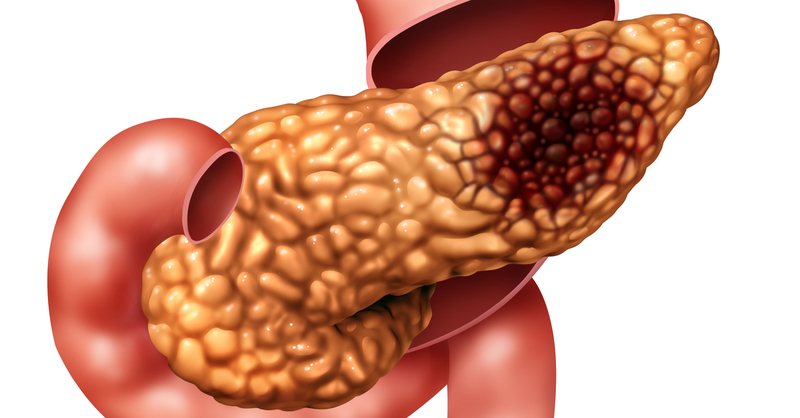Ibrutinib plus nab-paclitaxel/gemcitabine yields no survival benefit in metastatic pancreatic cancer
ESMO 21st World Congress on Gastrointestinal Cancer Newsroom Jul 11, 2019
Ibrutinib plus nab-paclitaxel/gemcitabine did not improve survival in patients with pancreatic ductal adenocarcinoma in a recent clinical trial, according to data presented at the ESMO 21st World Congress on Gastrointestinal Cancer.

“Ibrutinib is a BTK inhibitor, but also inhibits ITK. Inhibition of both pathways can theoretically reprogram the immune environment to augment tumor control,” explained Margaret Tempero, MD, Gastrointestinal Oncologist, University of California San Francisco, who presented the results from the RESOLVE trial.
The randomized, placebo-controlled, phase 3 RESOLVE trial assessed the efficacy of ibrutinib plus nab-paclitaxel/gemcitabine in 424 patients (median age, 64 years) with pancreatic ductal adenocarcinoma. Patients were randomized in a 1:1 ratio to receive ibrutinib plus nab-paclitaxel/gemcitabine (n=211) or placebo plus nab-paclitaxel/gemcitabine (n=213).
The co-primary end points of the trial were overall survival (OS) and progression-free survival (PFS); secondary end points included overall response rate (ORR) and safety.
Among all patients, the median c-reactive protein (CRP) was 15 mg/mL. As of the median follow-up (25 months), the primary end point was not met. Furthermore, the researchers observed no significant difference in OS between the ibrutinib plus nab-paclitaxel/gemcitabine and placebo plus nab-paclitaxel/gemcitabine arms (median, 9.7 vs 10.8 months, respectively; hazard ratio [HR], 1.109; P = .3225).
The PFS with ibrutinib plus nab-paclitaxel/gemcitabine was shorter than that with placebo plus nab-paclitaxel/gemcitabine (median, 5.3 vs 6.0 months, respectively; HR, 1.525; P<.0001), and the ORR was 29% versus 42% for either arm, respectively (P = .0058).
The most frequently reported adverse events grade ≥3 for ibrutinib plus nab-paclitaxel/gemcitabine vs placebo plus nab-paclitaxel/gemcitabine were neutropenia (24% vs 35%, respectively), peripheral sensory neuropathy (17% vs 8%), and anemia (16% vs 17%).
Dr Tempero and colleagues reported major hemorrhage in 6% of patients in both arms and
grade ≥3 atrial fibrillation in 1% and 2% of patients treated with ibrutinib plus nab-paclitaxel/gemcitabine placebo plus nab-paclitaxel/gemcitabine, respectively.
The main reasons patients discontinued therapy with nab-paclitaxel was because of disease progression (56% vs 59%) and adverse events (31% vs 23%) for ibrutinib plus nab-paclitaxel/gemcitabine and placebo plus nab-paclitaxel/gemcitabine, respectively.
“In conclusion, the addition of ibrutinib to gemcitabine and nab-paclitaxel did not improve overall survival or progression-free survival in patients with pancreatic adenocarcinoma,” said Dr Tempero.
“Ongoing blood biomarker analyses may clarify the role of ibrutinib in this or other solid tumors as an adjunct to immunotherapeutic or other treatment strategies,” she concluded.—Hina Khaliq
Tempero M, Oh D, Macarulla T, et al. Ibrutinib in combination with nab-paclitaxel and gemcitabine as first-line treatment for patients with metastatic pancreatic adenocarcinoma: results from the phase 3 RESOLVE study.
This article is a news release from ESMO 21st World Congress on Gastrointestinal Cancer Meeting. Read the original here.
-
Exclusive Write-ups & Webinars by KOLs
-
Daily Quiz by specialty
-
Paid Market Research Surveys
-
Case discussions, News & Journals' summaries